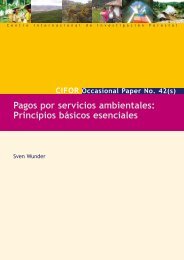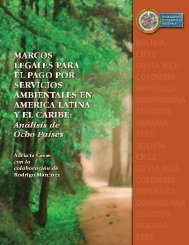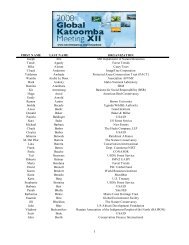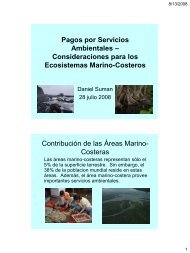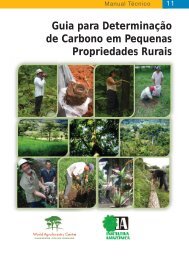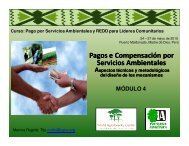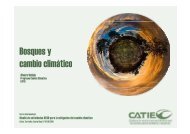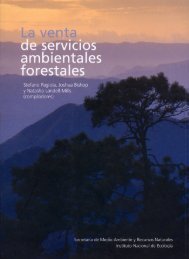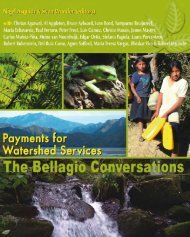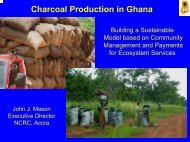Guide on Climate Change and Indigenous Peoples
Guide on Climate Change and Indigenous Peoples
Guide on Climate Change and Indigenous Peoples
- No tags were found...
Create successful ePaper yourself
Turn your PDF publications into a flip-book with our unique Google optimized e-Paper software.
6Why are these negotiati<strong>on</strong>s relevantto indigenous peoples?• It is vital that indigenouspeoples are able toparticipate effectively inthe current negotiati<strong>on</strong>s.This is to ensure that theirperspectives <strong>and</strong> proposalsare not <strong>on</strong>ly surfaced, butmore importantly, included inthe outcomes of the <strong>on</strong>goingtalks bey<strong>on</strong>d 2012.• In the Bangkok meeting in 2008, the c<strong>on</strong>venti<strong>on</strong> has stated that itwould c<strong>on</strong>tinue with CDM projects <strong>and</strong> other mitigati<strong>on</strong> measures thathave impacted gravely <strong>on</strong> indigenous peoples’ rights to their l<strong>and</strong>s<strong>and</strong> territories. There is a need to ensure that mechanisms are in placeto ensure that their rights are protected, <strong>and</strong> that these projects areundertaken with their FPIC, <strong>and</strong> benefits that are derived from suchprojects, are directly given to indigenous communities.• Negotiati<strong>on</strong>s <strong>on</strong> REDD are being fast-tracked towards a decisi<strong>on</strong> in 2009.<strong>Indigenous</strong> peoples need to engage in the discussi<strong>on</strong>s <strong>and</strong> negotiati<strong>on</strong>sc<strong>on</strong>sidering the potential impacts that REDD may have <strong>on</strong> their rightsto their forests. At the same time, this also presents opportunities toestablish spaces <strong>and</strong> mechanisms <strong>on</strong> indigenous peoples within theUNFCCC.• <strong>Indigenous</strong> peoples saw the need to further deepen their underst<strong>and</strong>ing<strong>on</strong> climate change <strong>and</strong> the negotiati<strong>on</strong>s, share their local adaptati<strong>on</strong><strong>and</strong> mitigati<strong>on</strong> measures, <strong>and</strong> to identify strategies - <strong>and</strong> an indigenouspeoples’ roadmap to Copenhagen <strong>and</strong> bey<strong>on</strong>d - to ensure thatindigenous peoples’ rights <strong>and</strong> development are c<strong>on</strong>sidered by theUNFCCC. In 2008-2009, indigenous peoples organized several regi<strong>on</strong>alsummits <strong>on</strong> climate change leading to the <strong>Indigenous</strong> <strong>Peoples</strong>’ GlobalSummit <strong>on</strong> <strong>Climate</strong> <strong>Change</strong> in 2009.In May 2008, the Asia focal pers<strong>on</strong> proposed that regi<strong>on</strong>s hold their ownprocesses to involve more indigenous peoples before the Global Summittakes place. The organizers for the regi<strong>on</strong>al summits were Tarcila RiveraZea of Chirapaq in Peru for the Latin America <strong>and</strong> Carribean Summit,Joseph Ole Simel of MPIDO in Kenya for the Africa Summit <strong>and</strong> VictoriaTauli-Corpuz of Tebtebba in the Philippines for the Asia Summit. 12138 <str<strong>on</strong>g>Guide</str<strong>on</strong>g> <strong>on</strong> <strong>Climate</strong> <strong>Change</strong> <strong>and</strong> <strong>Indigenous</strong> <strong>Peoples</strong>



